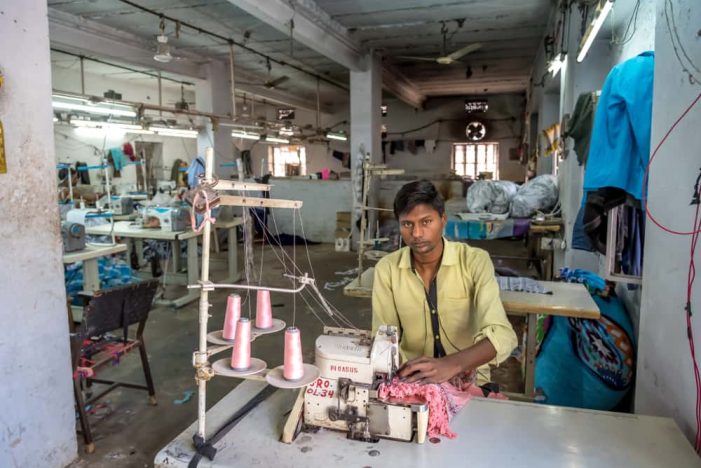Editorial credit: mark stephens photography / Shutterstock.com
By Janet Howard
In the global fashion industry, where trends change with the seasons, one constant should be to respect human rights. However, a recent report from the Business & Human Rights Resource Centre (BHRRC) highlights a troubling reality: despite the Universal Declaration of Human Rights guaranteeing the rights to peaceful assembly, association, and forming trade unions, these principles are often undermined in garment-producing countries.
The report identifies a pervasive reliance on “weak and bogus” representative structures by fashion brands and their suppliers. These structures, such as so-called “yellow unions,” are purportedly independent but are either created or controlled by employers. This arrangement effectively blocks genuine engagement with independent trade unions, perpetuating a cycle of poor working conditions and restricted worker rights.
The countries under scrutiny—Bangladesh, Cambodia, India, Indonesia, Pakistan, and Sri Lanka—are significant players in the global garment industry. Despite the critical role of trade unions in advocating for workers’ rights, the prevalence of these alternative structures hampers meaningful dialogue and collective bargaining. As a result, workers often find themselves without effective channels to address grievances or improve their working conditions.
Sitting atop the supply chain, fashion brands possess considerable influence and leverage. Yet, the report reveals a hesitance or unwillingness among many brands to challenge the status quo. By turning a blind eye or actively engaging with these “yellow unions,” brands contribute to perpetuating a system that prioritizes profit margins over human dignity.
The implications extend beyond mere economics. The failure to uphold workers’ rights violates ethical standards and undermines the sustainability and credibility of the entire fashion industry. Consumers, increasingly aware of social issues, demand transparency and ethical practices from the brands they support. This disconnect between professed corporate responsibility and actual practice risks eroding consumer trust and brand reputation.
Effective solutions demand a concerted effort from all stakeholders. By prioritizing genuine engagement with independent trade unions, fashion brands can support workers’ rights to organize freely and negotiate collectively. This approach not only aligns with international human rights standards but also fosters a more stable and sustainable supply chain. It’s a powerful reminder that change is possible when we all work together.
Furthermore, governments in garment-producing countries are responsible for enforcing labor laws and ensuring that workers can exercise their rights without fear of reprisal. Civil society organizations and international bodies play crucial roles in monitoring and advocating for meaningful reforms.
In conclusion, the BHRRC report serves as a stark reminder of the ongoing challenges within the global fashion industry. The prevalence of ‘yellow unions’ and similar structures undermines the fundamental rights of workers, perpetuating inequality and poor working conditions. It is incumbent upon all stakeholders—brands, suppliers, governments, and consumers—to demand and uphold the principles of dignity, fairness, and respect for human rights throughout the fashion supply chain. The very essence of our humanity is at stake, and only through genuine commitment to these principles can the industry truly claim to be ethical and sustainable.
As consumers, our choices matter. When we support brands that prioritize human rights and ethical practices, we contribute to a future where fashion not only looks good but also does good for all involved. We hold the power to shape the industry and demand change.

